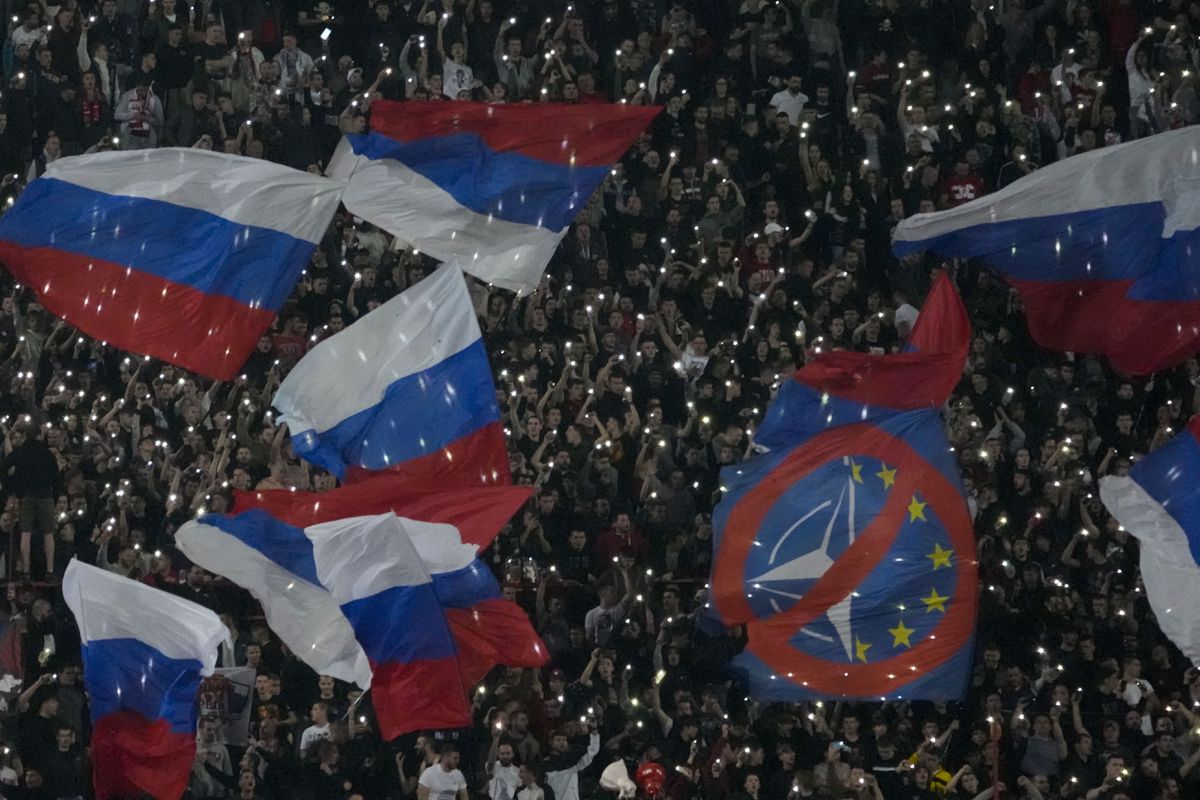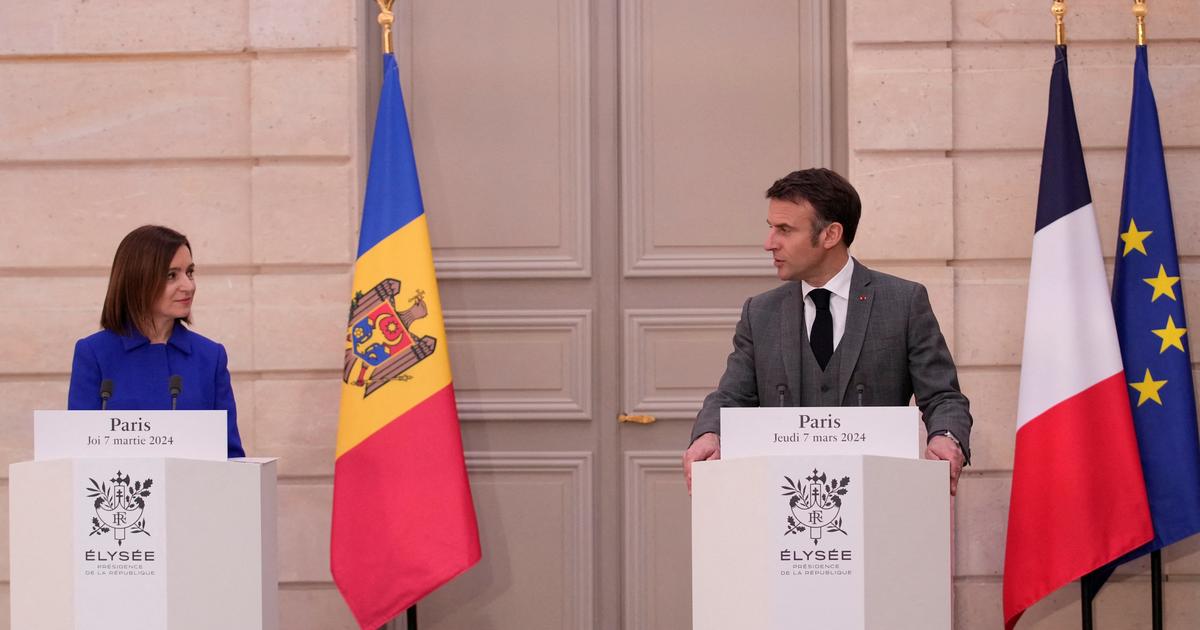Enlarge image
Olaf Scholz, Emmanuel Macron and Ursula von der Leyen
Photo: Geert Vanden Wijngaert / AP
The leaders of the European Union couldn't praise themselves enough.
Their unanimous decision to make Ukraine and Moldova candidate countries for their community was a "strong signal of determination," said EU Council President Charles Michel.
EU Commission chief Ursula von der Leyen spoke of a “historic decision” in the “face of Russian aggression”.
And French President Emmanuel Macron enthused: The community had shown itself to be “strong and united”.
However, these noble words could hardly hide the fact that the EU has done little more than offer Ukraine and Moldova as vaguely as possible a prospect of accession in the distant future.
In addition, the joy about this step was overshadowed by the massive frustration in the Western Balkans that the decision triggered.
On Thursday evening there was an unexpectedly long debate on the wording of the candidate status for Ukraine, Moldova and Georgia and the Western Balkans.
Austria presented itself as a pioneer for the Balkans
Austria, together with Slovenia, insisted that Bosnia-Herzegovina also hold out the prospect of candidate status – and promptly spread the word among the journalists present.
Apparently, it was important to act as a pioneer for the Balkans.
According to diplomats, Croatia, Hungary and Greece were also in favor of this, while the Netherlands, Belgium and the Scandinavians were rather skeptical.
In the end, Chancellor Olaf Scholz, Emmanuel Macron and Italy's Prime Minister Mario Draghi are said to have proposed the successful compromise.
The result: Ukraine and Moldova were granted candidate status without any preconditions.
Bosnia and Herzegovina are about the same level below: the EU has agreed to grant them candidate status as well, provided they meet a number of preconditions.
more on the subject
»We must not forget the Balkans«: EU gives Bosnia-Herzegovina new hope for candidate status
According to the summit document, however, Ukraine and Moldova must now also carry out reforms if they want to make any progress on their way to the EU.
If they are fulfilled, the actual accession negotiations do not begin automatically.
Instead, the EU states want to "decide on further steps" first.
The EU is thus keeping all options open to lengthen the process indefinitely.
She guaranteed Ukraine and Moldova that day: nothing.
Will the EU also disappoint Ukraine?
Depending on how many years the further accession process takes, this could cause the hangover in Ukraine and Moldova that has long prevailed in the Western Balkans and has been even worse since Thursday.
Serbia, North Macedonia, Bosnia and Herzegovina, Albania, Montenegro and Kosovo have been vying for EU membership for many years - only to see Ukraine and Moldova threatening to overtake them at a rapid pace.
This is one of the reasons why the heads of state and government of the six countries were allowed to speak in Brussels immediately before the EU summit.
But if the meeting with her colleagues from the 27 EU countries was intended as a kind of consolation, it went horribly wrong.
Serbian President Aleksandar Vučić declared before the summit that he expected "nothing" from it.
Albania warned the Ukrainians not to have any "illusions" despite the expected approval of candidate status.
The EU leaders then discussed with the Western Balkans representatives for almost four hours, only to end up empty-handed.
The opening of accession talks with North Macedonia and Albania is still blocked, the dispute with Serbia over the implementation of EU sanctions against Russia remains unresolved.
There was not even a joint press conference, which was canceled due to time constraints.
Albania's head of government, Edi Rama, complained that it was "a disgrace" that the NATO country Bulgaria was taking two other NATO countries, namely Albania and North Macedonia, hostage "in the middle of a hot war in Europe".
And the rest of the EU also sees the goings-on “in their impotence”.
Bosnian President Šefik Džaferović, on the other hand, was upset that Ukraine was rushed to obtain candidate status, which his country – which was also ravaged by war in the 1990s – had been waiting for for years.
"Everything that Ukraine is suffering today, we also had to endure," he said.
Shortly before the meeting, Chancellor Scholz had promised that the EU wanted to "make progress" so that the countries of the Western Balkans would have "realistic prospects of accession".
For a long time now, the EU Commission has also considered that all the prerequisites for negotiating accession with North Macedonia and Albania have been met.
Bulgaria continues to block
But the government in Sofia is against it: North Macedonia must first recognize the Bulgarian roots in the language and history of their country and guarantee the Bulgarian minority more rights.
When Prime Minister Kiril Petkov recently indicated that he could make concessions to the neighboring country on the issue, the nationalist party of populist Slavi Trifonov resigned from his government.
A few days before the EU summit, Petkov lost his majority, and all attempts to solve the problem before the meeting failed.
For the EU, the summit once again posed the question that has been asked time and again since it was founded more than 60 years ago.
Can it accept new members and still remain capable of acting?
Already there are many in Brussels who think the club of 27 Member States is too big and cumbersome.
»Not everyone in Europe has to live in the same house«
France's President has therefore long been of the opinion that Europe needs a "new political structure," as he explained to his colleagues over dinner.
The community is in a "permanent tension" between its geopolitical task of acting as a regulatory power in its neighborhood, for example in the Balkans, and at the same time promoting the deepening of its political structures, for example in financial and economic policy.
Macron therefore has a "new political community" in mind that should sweeten the time waiting for the accession candidates.
For example, through increased cooperation with the EU in individual policy areas such as energy, defense or infrastructure.
The President was not yet able to explain his plan more specifically, but he had a nice picture ready for his audience.
"Not everyone in Europe has to live in the same house," he said, although it could also be "the same street."















